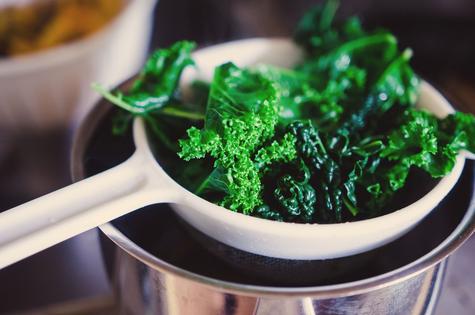Environmental Nutrition: Vitamin K update
Discovered in the early 1930s, vitamin K was given its name "K" after the first letter of the German word "koagulation," due to its blood clotting effects. Since then, our knowledge base has expanded on this essential micronutrient.
What it is: Vitamin K is a fat-soluble vitamin that comes in two forms. Phylloquinone (K1), found in plants, provides most of the vitamin K in our diets. Menaquinones (K2) is a group of compounds found mostly in fish, oils and meats, and is also made by gut bacteria.
What it does: Vitamin K is important in blood clotting; it acts as a coenzyme in the production of prothrombin and assists in the creation of three more proteins needed for the process. In addition, vitamin K is essential in building bones because the body cannot utilize calcium without it. Researchers are investigating a possible link between vitamin K deficiency and an increase in bone fractures, osteoporosis and lower bone mass density. And vitamin K may also help to prevent calcification of blood vessels and loss of vessel elasticity.
Where to find it: The best food sources of vitamin K overall are vegetable oils (i.e., soybean, canola and olive), liver and leafy green vegetables, such as kale, greens and spinach. Meat, dairy and eggs contain low amounts of vitamin K1, but slightly higher amounts of vitamin K2. Vitamin K1 is generally included in multivitamins, but is also available as its own supplement, usually combined with calcium, magnesium, or vitamin D.
How to fit it in. Typical intakes of vitamin K in the U.S. meet recommended levels (120 micrograms per day for men age 19 and older, and 90 mcg for women). Certain medications can interact with vitamin K. Long-term use of antibiotics can kill beneficial bacteria that make vitamin K in the gut. The weight loss drugs Orlistat or Olestra, and the cholesterol-lowering bile acid sequestrants Choletryamine, Colestipol and Colsevelam, can block fat absorption, creating a potential for vitamin K deficiency since it is fat-soluble. Individuals taking the blood thinners Warfarin or Coumadin should make sure vitamin K intake stays consistent, as too much can block the effects of blood thinners. Aside from medications, lack of absorption can be caused by hemodialysis or certain conditions, such as gallbladder, biliary, liver, celiac and Crohn's disease. In these instances, supplementation may be recommended by your health care provider.
(Environmental Nutrition is the award-winning independent newsletter written by nutrition experts dedicated to providing readers up-to-date, accurate information about health and nutrition in clear, concise English. For more information, visit www.environmentalnutrition.com.)







